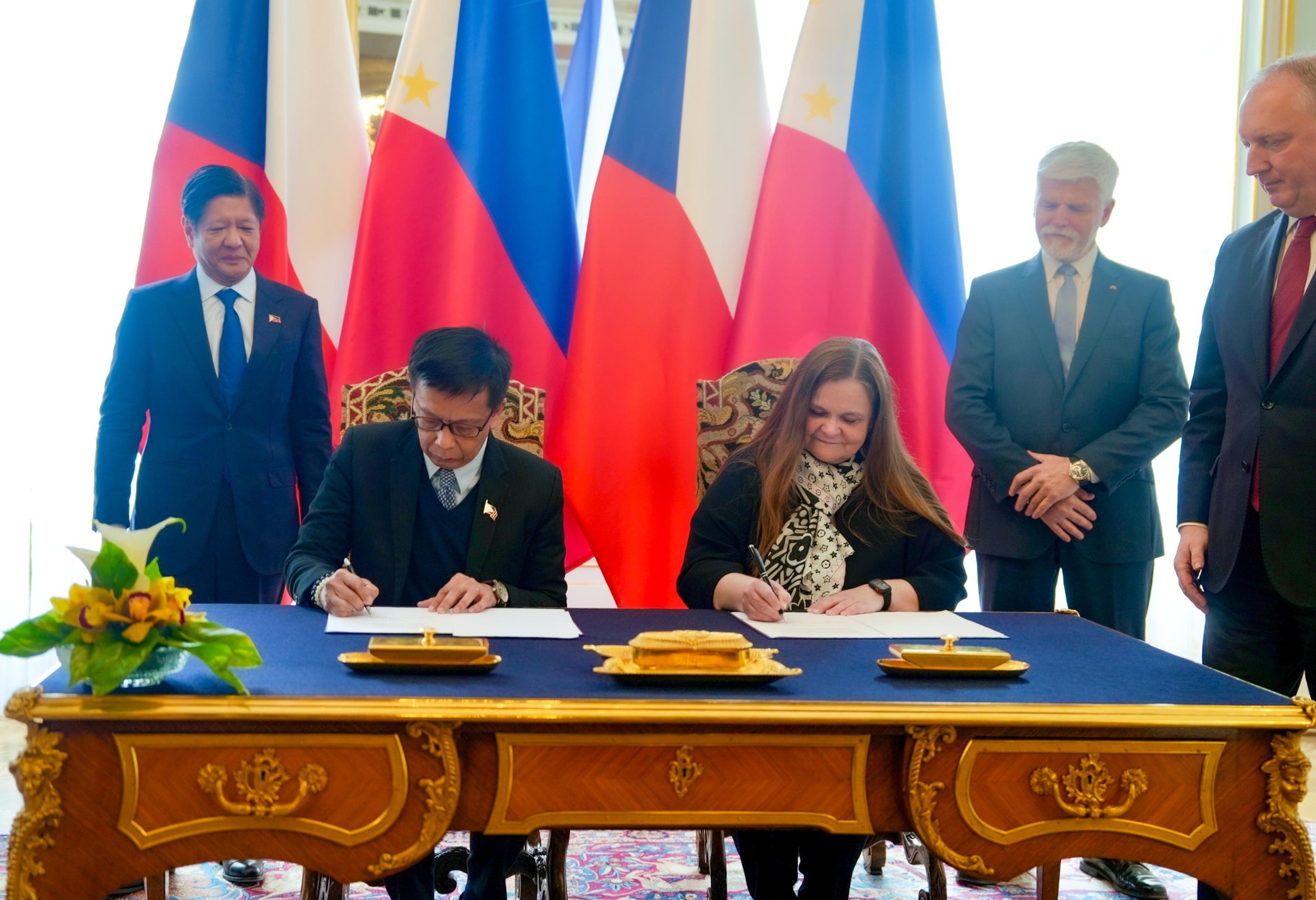
By Brian Jules Campued
President Ferdinand R. Marcos Jr. on Thursday welcomed the signing of the Joint Communiqué on Labor Consultations Mechanism between the Philippines and Czech Republic aimed at discussing areas of mutual interests for the welfare of overseas Filipino workers (OFWs) in the Central European nation.
The labor pact was inked by the Department of Migrant Workers (DMW) and the Czech Ministry of Labor and Social Affairs on the sidelines of Marcos’ bilateral meeting with Czech President Petr Pavel in Prague Castle.
In a joint press conference with Pavel, Marcos noted the Czech Republic’s announcement to raise its quota for Filipino workers to 10,300 per year starting May 2024 from 5,500 in January 2024.
Started in 2018, the Czech Republic’s economic migration program allows Filipino workers in the country on a year quota from 1,000 per year from 2018, 2,000 per year from 2021, and 2,500 per year from November 2022.
“We are ready to cooperate in ensuring the orderly deployment of Filipinos to your country, in accordance with both Czech and Philippine laws,” he added, emphasizing that the Philippine government’s top priority is the protection of the rights and well-being of OFWs.
According to Malacañang, the DMW proposed the signing of the Joint Communiqué on Labor Consultations Mechanism to tackle labor issues and for more organized deployment of Filipino workers.
“Given the increasing demand for Filipino workers, DMW deemed it necessary for the Philippines and the Czech Republic to enter into a labor agreement, aimed at an orderly deployment; outlining the rights and responsibilities of both participants; and ensuring that recruitment is implemented in a fair and ethical manner,” Communications Secretary Cheloy Garafil said.
Based on data from the Czech Ministry of Interior, there are about 7,026 Filipinos in the Czech Republic as of Dec. 31, 2023. Prague remains host to the highest number of OFWs in the European country with 1,511, followed by South Moravia (1,242), and Central Bohemia (905), among other jurisdictions.
The OFWs are engaged in the processing industry, automotive, appliance repair, manufacturing, IT communications, real estate, health or wellness, and household service work.
Meanwhile, during a meeting with Prime Minister Petr Fiala, Marcos acknowledged the “good performance” Filipino workers have shown in their host countries as they are the Philippines’ biggest asset.
“[The] increase in the quota gives us an opportunity in the Philippines to have another avenue for our overseas workers who have traditionally have become rather a very large part of our economy and very large part of the contributions that they make to our economy,” the President said during the meeting. – avds
